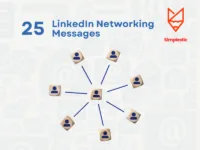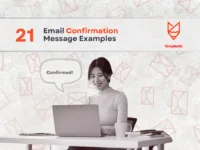Disappointment is a common emotion in the workplace, whether it stems from unmet expectations, project setbacks, or interpersonal conflicts. Effectively communicating disappointment in a professional setting requires a careful choice of words to maintain a respectful tone while conveying your feelings. This blog explores various phrases and expressions that can help you articulate disappointment constructively.
How to Express Disappointment Professionally & Why It Matters
Expressing disappointment appropriately is crucial for several reasons:
- Maintaining Professionalism: Using the right words can help you maintain a level of professionalism, even in challenging situations.
- Encouraging Constructive Dialogue: Clear communication can lead to productive discussions and potential solutions.
- Building Relationships: How you express disappointment can impact your relationships with colleagues, supervisors, and clients.
Key Phrases to Express Disappointment
Read more Angry Email | Express Your Anger Professionally
- “I was hoping for a different outcome.”
- This phrase conveys your disappointment without assigning blame. It opens the door for discussion about what went wrong and how it can be addressed.
- “I expected more from this project.”
- This expression clearly indicates that the results did not meet your expectations. It can prompt a conversation about performance and areas for improvement.
- “I’m disappointed with the progress we’ve made.”
- This statement is direct and highlights your feelings about the pace of work. It encourages reflection on team dynamics and project management.
- “I feel let down by the recent developments.”
- This phrase personalizes your disappointment, making it clear that the situation has affected you. It can foster empathy and understanding among colleagues.
- “This isn’t what I anticipated.”
- By stating this, you acknowledge a disconnect between expectations and reality. It can lead to a constructive dialogue about future expectations and goals.
- “I believe we missed an opportunity here.”
- This expression focuses on the potential that wasn’t realized, rather than dwelling solely on disappointment. It encourages a forward-looking perspective.
- “I would appreciate a review of our approach.”
- Instead of simply expressing disappointment, this phrase invites collaboration to assess and improve the current strategy.
- “I’m concerned about the direction we’re heading.”
- This statement expresses disappointment while also highlighting a proactive stance. It opens the floor for discussion about potential changes.
- “I wish we could have achieved a better result.”
- This phrase reflects a desire for improvement and can lead to discussions about what could have been done differently.
- “I think we need to reassess our priorities.”
- This expression of disappointment can help refocus efforts and ensure that everyone is aligned on future objectives.
Tips for Communicating Disappointment Effectively
- Choose the Right Moment: Timing is crucial. Address disappointment when emotions are not running high, and the conversation can be constructive.
- Use “I” Statements: Frame your feelings from your perspective to avoid sounding accusatory. For example, “I felt disappointed when…” instead of “You let me down by…”
- Stay Solution-Oriented: While it’s important to express disappointment, also focus on how to move forward. This approach fosters a collaborative atmosphere.
- Be Specific: Clearly articulate what specifically led to your disappointment. General statements can lead to misunderstandings.
- Practice Active Listening: After expressing your feelings, listen to the responses of others. This can help you understand their perspectives and work towards a resolution.
Here are seven email samples to express disappointment in various contexts, including professional and personal situations. Each sample is tailored to convey disappointment while maintaining professionalism and respect.
Sample 1: Disappointment with a Job Application Outcome
Subject: Follow-Up on Job Application for [Job Title]
Dear [Hiring Manager’s Name],
I hope this message finds you well. I wanted to reach out to express my disappointment upon receiving the news that I was not selected for the [Job Title] position at [Company Name]. I genuinely enjoyed the interview process and appreciated the opportunity to learn more about your team and the innovative work being done at [Company Name].
I am very passionate about the work you do, and I would like to remain a candidate for future openings. If possible, I would greatly appreciate any feedback you could share regarding my application or interview performance, as I am always looking to improve.
Thank you for considering my application, and I hope to stay in touch for potential opportunities in the future.
Sample 2: Disappointment with a Product or Service
Subject: Feedback on Recent Purchase Experience
Dear [Customer Service Team/Manager’s Name],
I hope this message finds you well. I am writing to express my disappointment with my recent experience regarding [Product/Service Name]. Unfortunately, it did not meet my expectations due to [briefly explain the issue, e.g., quality, functionality, customer service].
I have always appreciated [Company Name] for its commitment to quality, which is why this experience was particularly disheartening. I would appreciate any assistance you could provide in resolving this matter.
Thank you for your attention to this issue. I look forward to your prompt response.
Sincerely,
[Your Name]
[Your Contact Information]
Sample 3: Disappointment with a Team Project Outcome
Subject: Reflection on [Project Name] Outcome
Dear [Team/Colleagues’ Names],
I hope this message finds you all well. I wanted to take a moment to express my disappointment regarding the outcome of our recent project, [Project Name]. Despite our hard work and dedication, I believe we fell short of our initial goals.
I think it’s important for us to reflect on what we could improve moving forward. I would appreciate your thoughts on how we can better align our efforts and strategies for future projects.
Thank you for your commitment and collaboration. I am confident that we can learn from this experience and achieve greater success together.
Best,
[Your Name]
[Your Position]
Sample 4: Disappointment with a Service Provider
Subject: Concerns Regarding Service Quality
Dear [Service Provider’s Name],
I hope this email finds you well. I am writing to express my disappointment with the level of service I received during my recent interaction with your team. The experience did not meet the standards I have come to expect from [Company Name].
Specifically, [briefly describe the issue, e.g., delayed response times, unhelpful support]. I value our relationship and hope we can address these concerns to improve future interactions.
Thank you for your attention to this matter. I look forward to your prompt response.
Best regards,
[Your Name]
[Your Contact Information]
Sample 5: Disappointment with a Cancelled Event
Subject: Disappointment Regarding [Event Name] Cancellation
Dear [Organizer’s Name],
I hope this message finds you well. I wanted to express my disappointment regarding the cancellation of [Event Name]. I was looking forward to participating and connecting with others in the community.
I understand that unforeseen circumstances can arise, and I appreciate the efforts made to organize the event. If there are plans to reschedule or any alternative options available, I would love to stay informed.
Thank you for your understanding, and I hope to participate in future events.
Sincerely,
[Your Name]
[Your Contact Information]
Sample 6: Disappointment with a Colleague’s Performance
Subject: Feedback on Recent Collaboration
Dear [Colleague’s Name],
I hope you are doing well. I wanted to take a moment to discuss our recent collaboration on [Project Name]. I must admit that I was disappointed with certain aspects of the project, particularly regarding [specific performance issue, e.g., missed deadlines, lack of communication].
I believe we can achieve great results together, and I would appreciate the opportunity to discuss how we can improve our collaboration moving forward. Your insights and contributions are valuable, and I want to ensure we are aligned in our efforts.
Thank you for your attention to this matter. I look forward to your thoughts.
Best,
[Your Name]
[Your Position]
Sample 7: Disappointment with a Family Member’s Decision
Subject: A Note from the Heart
Dear [Family Member’s Name],
I hope this finds you well. I wanted to express my disappointment regarding your recent decision about [specific situation]. I care deeply about you and hoped for a different outcome.
While I respect your choices, I would love to talk about it further. I believe open communication is essential, and I want to ensure we understand each other’s perspectives.
Thank you for taking the time to read this. I look forward to hearing from you.
With love,
[Your Name]
These samples can be adjusted to fit your specific situation and feelings while maintaining a respectful and constructive tone.
Text Snippets to Express Disappointment
When communicating disappointment via email, it’s important to be clear yet tactful. Here are 15 email snippets that you can customize to fit your specific situation:
- Project Delays
- “I was disappointed to learn that the project timeline has been pushed back. I believe we need to discuss how we can get back on track.”
- Unmet Expectations
- “I had hoped for a more comprehensive report. It would be helpful to understand the challenges faced in delivering the expected results.”
- Lack of Communication
- “I feel let down by the lack of updates on the project’s status. Regular communication is vital for our success, and I would appreciate more frequent check-ins.”
- Team Performance
- “I’m concerned about the recent performance of our team. I expected us to meet our goals, and I think we need to address the underlying issues.”
- Client Feedback
- “I was disappointed to receive negative feedback from the client. I believe we need to reassess our approach to ensure we meet their expectations moving forward.”
- Missed Deadlines
- “It’s disheartening to see that we missed the deadline for the deliverable. Let’s discuss what went wrong and how we can improve our time management in the future.”
- Quality of Work
- “I expected a higher quality of work on this project. Can we set up a time to review the deliverables and identify areas for improvement?”
- Budget Constraints
- “I’m disappointed that we are facing budget constraints that limit our options. I believe we should explore alternative solutions to achieve our objectives.”
- Lack of Initiative
- “I had hoped to see more initiative from the team on this project. Let’s discuss how we can encourage proactive contributions moving forward.”
- Feedback on Ideas
- “I feel let down by the lack of feedback on my recent proposal. Constructive criticism is essential for my growth, and I would appreciate your thoughts.”
- Failure to Collaborate
- “I was disappointed by the lack of collaboration during our last meeting. Effective teamwork is crucial, and I believe we need to work on our communication.”
- Training Opportunities
- “I was hoping for more training opportunities this quarter. Investing in our skills is important, and I’d like to discuss how we can prioritize this.”
- Response Time
- “I’m concerned about the delayed responses regarding our project inquiries. Timely communication is essential for our success, and I hope we can improve this.”
- Decision-Making Process
- “I feel disappointed with the recent decision-making process. I believe involving more team members could lead to better outcomes.”
- Lack of Recognition
- “I was hoping for more recognition of our team’s hard work on this project. Acknowledgment can motivate us to continue performing at our best.”
These snippets can serve as a foundation for expressing disappointment in various professional contexts. Remember to personalize them according to your situation and audience, ensuring that your message is both clear and respectful.
Word List
Here are a few synonyms to express your disappointment when writing an email or a letter:
- regret
- distress
- discontent
- dissatisfaction
- displeasure
- despondency
- discouragement
- letdown
- failure
- setback
Expressing disappointment in a professional context is an essential skill that can lead to better communication and improved outcomes. By using thoughtful language and focusing on constructive dialogue, you can convey your feelings while maintaining professionalism and fostering a positive work environment. Remember, the goal is not just to express dissatisfaction but to pave the way for improvement and collaboration.




